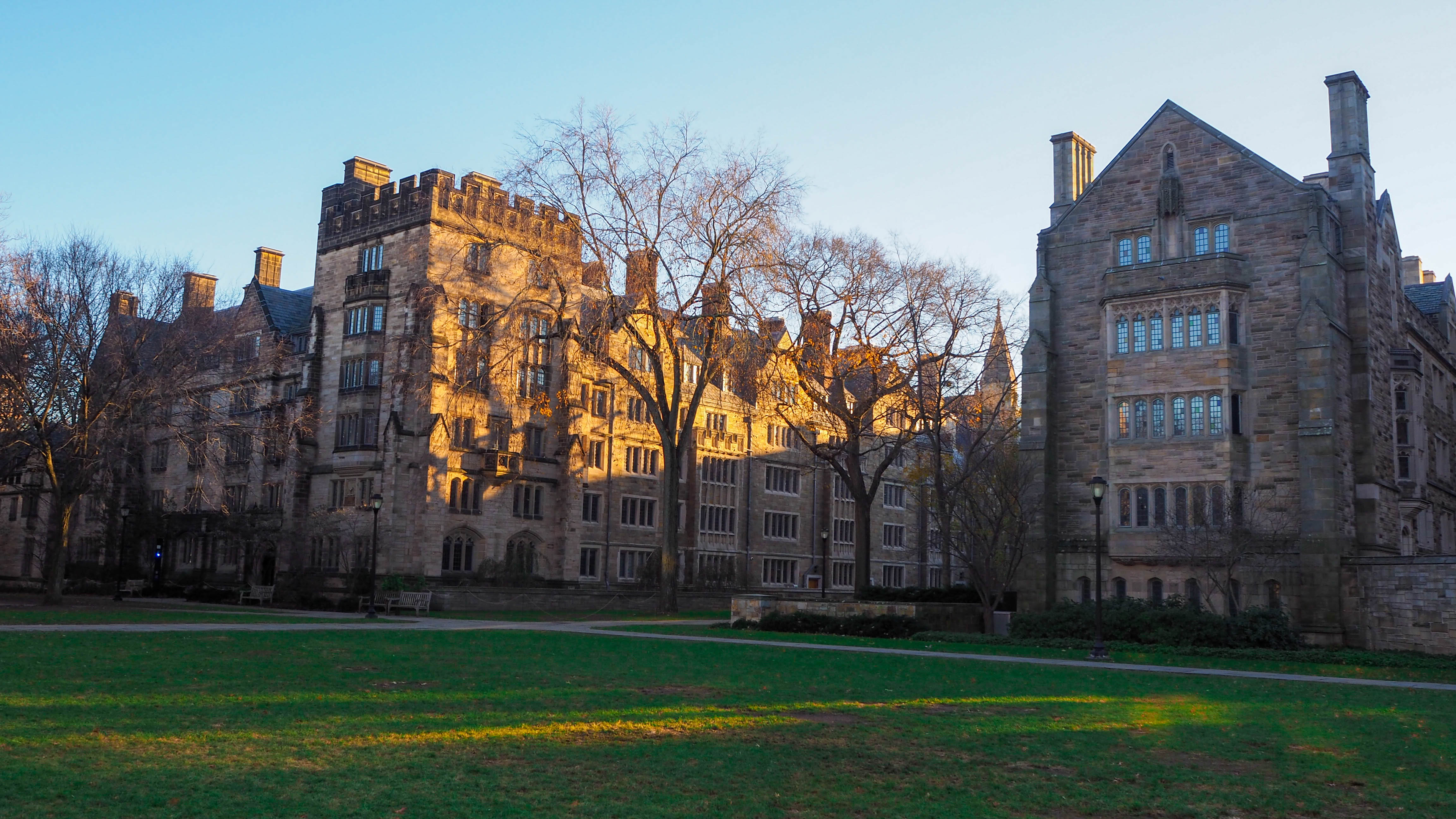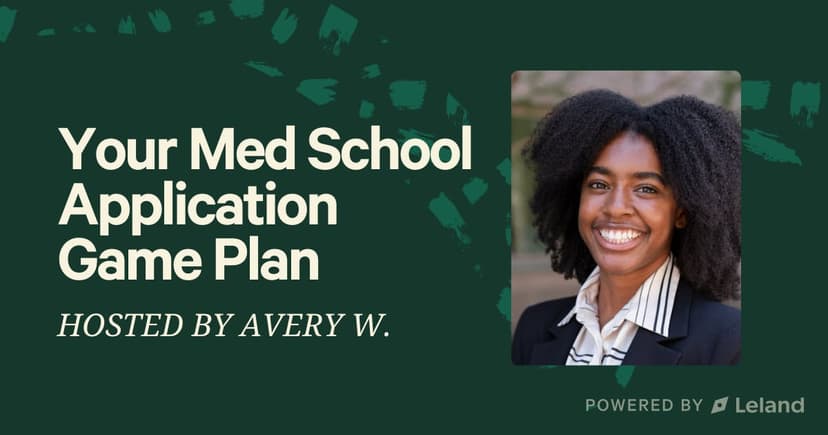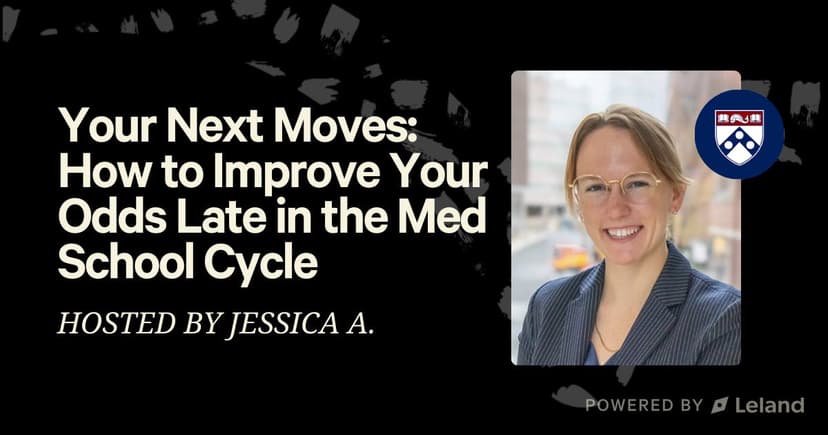Yale School of Medicine: Your Guide to the MD Admissions
Considering applying for Yale Medicine? Learn more about the application process and MD program with our guide.
Posted June 13, 2025

Join a free event
Learn from top coaches and industry experts in live, interactive sessions you can join for free.
Table of Contents
Founded in 1810, the Yale University’s School of Medicine is a world-class academic institution situated in New Haven, Connecticut. It's one of the country's oldest and most renowned medical schools, with a long tradition of excellence in medical education, biomedical research, and clinical care. This guide will provide an in-depth look at Yale Medicine, including its admissions process, curriculum overview, and affordability.
Yale Medical School Class Profile (Class of 2027)
- Applicants: 5,495
- Class Size: 104
- Acceptance Rate: 1.9%
- Median GPA: 3.92
- Median MCAT: 522
- Underrepresented in Medicine: 35%
- Female Students: 48.1%
Yale Application Process
The application process to the MD program at Yale Medicine is highly competitive, with an acceptance rate of about two percent. The admissions committee seeks applicants who will become “creative leaders in medicine and science, promoting curiosity and critical inquiry in an inclusive environment enriched by diversity.”
Like most medical schools, Yale accepts primary applications through AMCAS and requires secondary applications and interviews for admission.
Application Deadlines (2023-2024 Cycle)
| AMCAS Application Opens | May 3, 2023 |
| AMCAS Application Submissions Open | May 31, 2023 |
| Interviews Begin | September 2023 |
| AMCAS Application Due | October 15, 2023 |
| Secondary Application Due | November 15, 2023 |
| Interviews End | January 2024 |
| Admissions Decisions Go Out | March 2024 |
Deadlines for the 2024-2025 application cycle have not been released yet, so stay up-to-date with the admissions page.
AMCAS Application
- Identifying Information: You’ll submit your biographic information here.
- Schools Attended: You’ll need to enter all high schools, colleges, and universities attended, as well as official college and university transcripts.
- Biographic Information: Here, you’ll enter additional personal information, such as language proficiency, residency, and any challenges you have faced.
- Coursework: Enter all postsecondary courses you took. These will be used to determine your AMCAS GPA.
- Work/Activities: You’ll enter up to 15 experiences here, such as employment, extracurriculars, honors and awards, and publications.
- Letters of Evaluation: If your institution has a premedical committee, submitting a committee letter is strongly encouraged. However, if your institution does not have a committee, you’ll need to submit at least three individual letters of evaluation.
- If you’re applying for the MD/PhD program, one letter should be from your most recent research supervisor.
- Essays: You’ll need to submit a personal comments essay of 5,300 characters or less explaining why you are pursuing medicine. This essay is sent to all medical programs you apply for.
- If you’re applying for the MD/PhD program, you’ll need to submit two additional essays, the MD/PhD essay and the Significant Research Experience essay. If your work was published, you should include the full citation in the Work/Activities section.
- Standardized Tests: In this section, you’ll submit your MCAT scores from a test within three years of your expected matriculation. You can also submit scores from any AAMC Preview, LSAT, GRE, GMAT, or MAT exams.
- Fees: Finally, you’ll need to pay a $175 application for the first medical school you apply for and $45 for additional schools.
For more information, see the 2024 AMCAS Applicant Guide.
Secondary Application
After submitting the primary application, you’ll need to submit the secondary application, which includes a $110 fee and the following prompts:
- Yale School of Medicine values diversity in all its forms. How will your background and experiences contribute to this important focus of our institution and inform your future role as a physician? (500 words)
- MD applicants: Please answer either one of the following questions, MD/PhD applicants: Please answer question 2 as it pertains to your proposed PhD research.
- While there is great emphasis on the physician-patient relationship, Yale School of Medicine also emphasizes the importance of training future physicians to care for communities and populations. Describe how your experiences would contribute to this aspect of the mission of the Yale School of Medicine. (500 words)
- Research is essential to patient care, and all students at Yale School of Medicine complete a research thesis. Tell us how your research interests, skills, and experiences would contribute to scholarship at Yale School of Medicine. (500 words)
You can also use the additional information section to explain your post-graduate experiences or any other important information not already in your application materials (if applicable).
Interview
After submitting your primary and secondary applications, you may be invited to interview for admission. All interviews are currently virtual and begin with an orientation with the Director of Admissions. You’ll then participate in two 45-minute interviews with admissions committee members and a Faculty Meet and Greet, in which a faculty member will explain their research and conduct a Q&A session.
Our Tips for Acing the Interview:
- Your interviewer will most likely have reviewed your application in depth, so try emphasizing experiences and qualities that are not already listed in your application.
- Come with questions: this is also your opportunity to learn more about Yale’s patient care, learning environment, and outreach efforts. Thoughtful questions can show that you are genuinely interested in the school.
- Practice, practice, practice! An experienced admissions coach can support you through the application and interview and help you determine which personal qualities will make you stand out.
MD Program Curriculum
Pre-Clerkship Period
The four-year program is divided into three stages: the Pre-Clerkship Period (1.5 years), Clerkship Period (1 year), and Advanced Training Period (1.5 years). In the first stage, students take foundational science and medicine courses and longitudinal courses on professional responsibility, anatomy, scientific inquiry, and populations and methods. They’ll also learn how to work with patients in the Interprofessional Longitudinal Clinical Experience, Medical Clinical Experience, and the Clinical Skills course. In the summer between Years 1 and 2, students may choose to conduct research or enroll in electives.
Clerkship Period
In the second half of Year 2, students begin twelve-week clerkships in internal medicine, neurology, surgery, emergency medicine, obstetrics and gynecology, pediatrics, primary care, and psychiatry.
Advanced Training Period
In this period, students gain additional experience working with patients through subinternships and electives. They’ll also complete a research thesis on topics ranging from access to health care to child psychiatry, take the USMLE Steps I and II, and prepare for residency.
Cost of Attendance
As a private institution, Yale Medicine can be extremely expensive to attend. However, the school is committed to providing financial aid and lowering student debt, with an average scholarship amount of $66,000 per year. If you qualify for need-based aid, you’ll take out up to $10,000 per year, and the school will meet the remaining costs.
| M1 | M2 | M3 | M4 | |
|---|---|---|---|---|
| Tuition | $72,290 | $72,290 | $72,290 | $72,290 |
| Books & Supplies | $3,092 | $3,092 | $3,092 | $3,092 |
| Equipment | $1,508 | NA | NA | NA |
| Fees | $1,205 | $1,205 | $1,205 | $1,205 |
| Estimated Living Expenses | $28,850 | $31,736 | $34,120 | $28,840 |
| Medical Expenses | $3,268 | $3,268 | $3,268 | $3,268 |
| Travel to Rotations | $992 | $3,240 | $3,534 | $5,480 |
| USMLE Exam Fees | NA | NA | $1,320 | NA |
For more information, see the office of financial aid page.
FAQs
Q: Where do clerkships take place?
- A: Most are completed at Yale-New Haven Hospital, the West Haven Veterans Administration Medical Center, and the St. Raphael's Hospital campus. Some clerkships also take place at private physician offices and affiliated institutions.
Q: What dual degrees are available?
- A: See the full list of dual degrees here.
Q: Is the thesis required?
- A: Yes, you’ll need to complete a thesis to graduate. The topics you can pursue are basic-laboratory research, clinical research, global health, humanities in medicine, and medical education.
For more helpful resources, check out these articles:
Browse hundreds of expert coaches
Leland coaches have helped thousands of people achieve their goals. A dedicated mentor can make all the difference.















